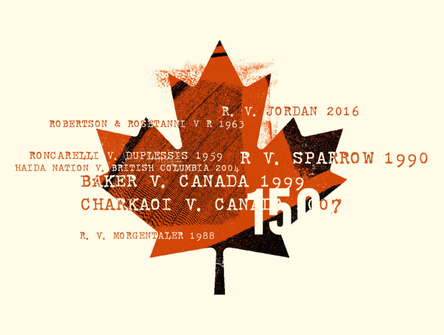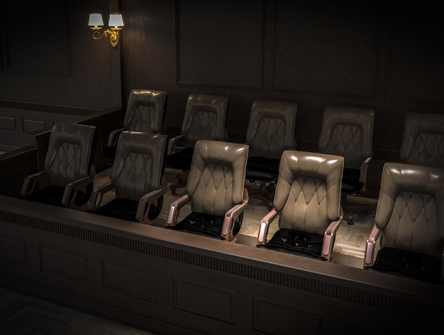Hidden provision in Bill C-31
How the passing of the omnibus bill could jeopardize the independence of 11 tribunals.

A provision found deep within this year’s budget bill has caught the attention of the CBA because of its potential impact on the administration of justice and access to justice. Brought without prior notice or consultation with stakeholder organizations, the provision would merge the function of 11 tribunals with the creation of the Administration Tribunals Support Service of Canada. It will be the sole provider of registry, research, administrative and analysis services for 11 independent tribunals. The CBA recently appeared before the Senate and House Finance Committees calling on the government to scrap the section of the bill establishing the ATSSC. I caught up with Cyndee Todgham Cherniak to discuss its implications and CBA’s call for it to be withdrawn.
National: What will the impact of this merger have on those who regularly appear before the tribunals?
Cyndee Todgham Cherniak: Well, there’s the potential for files not to be staffed properly. Currently at the Canadian International Trade Tribunal, when a case comes in, the Chairman of the tribunal finds the members to adjudicate the case. Sometimes it’s one member and sometimes it’s a panel of three. Then the researchers, litigation, and registry staff are assigned to that particular file, and they set up all the procedures for that file.
Under the merger, that assignment task will no longer reside with the members of the tribunal, it will be with the administrator of the merged entity. You’re going to potentially have cases that are not staffed properly. It’s as if all of a sudden you’ve got a new managing partner of the law firm and you used to be head of the department; he’s now head of everything. And if you want to go and speak at a conference, you have to go ask for money. If you want to staff up a big file that came in, you have to go to someone else and say can you please assign me some people to be on this file.
N: What do these changes do to fairness and principles of natural justice?
CTC: Well that’s a loaded question. Merging these tribunals means all the support staff get removed from the individual tribunal. However, the members (decision makers, judges, adjudicators) stay with the tribunal. For the Canadian International Trade Tribunal, the Chairman, Vice-Chairman and members stay as the Canadian International Trade Tribunal, but their staff, (including registry,legal,research, human resources, corporate, etc.) all move over to this merged entity.
So if I’m filing my documents, my complaint or my appeal is filed with the merged entity before going to the CITT judges. And whenever I make submissions I file them with the merged entity. In essence, I’m filing documents as an appellant with an entity that is controlled by the Minister of Justice. If it happens to be a customs appeal, the opposing lawyer representing the Crown also reports to the Minister of Justice. It may appear as though my client’s not going to get a fair hearing, or the staff may favour the lawyer for the Crown because they’re both employed by the same Minister.
N: Why is the restructuring of the tribunals of concern to the CBA?
CTC: The CBA is concerned about its effect on both the administration of justice and on access to justice. If someone has been assessed by the Canada Border Services Agency, they may be afraid to bring this case to the CITT because they may feel as though the staff of the merged entity involved in this file will be biased against them. This could have a negative impact on access to justice.
The concern is also on this newly merged entity and the merger of the staff of these 11 tribunals. If you look down the road, you can imagine a future budget where there is an across the board cost-cutting goal of 10 Per cent. Staff at this merged entity would then face cuts. So it could happen then, that to save money, staff who used to be at the cultural tribunal are shifted to work on matters at the Canadian International Trade Tribunal. Perhaps because the Canadian International Trade Tribunal is really busy, centralization is thought of as creating efficiency, but really, it can lead to many problems.
The staff at the cultural tribunal wouldn’t have the skill set and the expertise to work on a Canadian International Trade Tribunal matter. Information may not be processed properly. In any court or tribunal case, decisions are made by ascertaining the facts, determining the correct law, and applying the law to the facts. If you improperly staff the files you run into potential for real problems such as delays, misinterpretation etc. In the future, as experts who have worked in the individual tribunals for many years retire, there may be a dilution of expertise and skills for the individual tribunals due to the merger.
N: What differentiates the CITT from other tribunals and why should it be given special consideration?
CTC: Well the most important thing is that it’s a creature of statute. And the statute has evolved as a result of free trade agreements and the World Trade Organization agreements that Canada’s entered into. So there are specific provisions in our national obligations that require an impartial, independent body making decisions on trade matters. So put yourself in the position of China, for example, which is always hard to do.
They’ve entered into the WTO agreement and they’re hoping that whenever their goods run into problems around the world, there’ll be a fair body in that other jurisdiction rendering a decision about it. And if that decision-maker is now part of the Canadian government, there will possibly be an apprehension of a bias by our trading partners against Canada’s structure for decisions in trade-related matters.
As far as the Canadian International Trade Tribunal is concerned, it’s Canada’s international reputation that is at stake. And we may be the subject of trade disputes brought at the WHO, the WTO, or under free-trade agreements that will end up costing a lot more money in defending the case
N: Where does this all go now? What’s the timeline?
CTC: This is a fast-moving freight train. The timeline suggests that the government hopes that the budget bill will be passed before the House rises for the summer, and that’s usually sometime in June, so we don’t have a whole lot of time. And so the question is whether or not it’s going to be passed without amendment or whether it’s going to be passed with a few amendments and they take these few items out that people are speaking out against, and then pass the rest of the bill.


